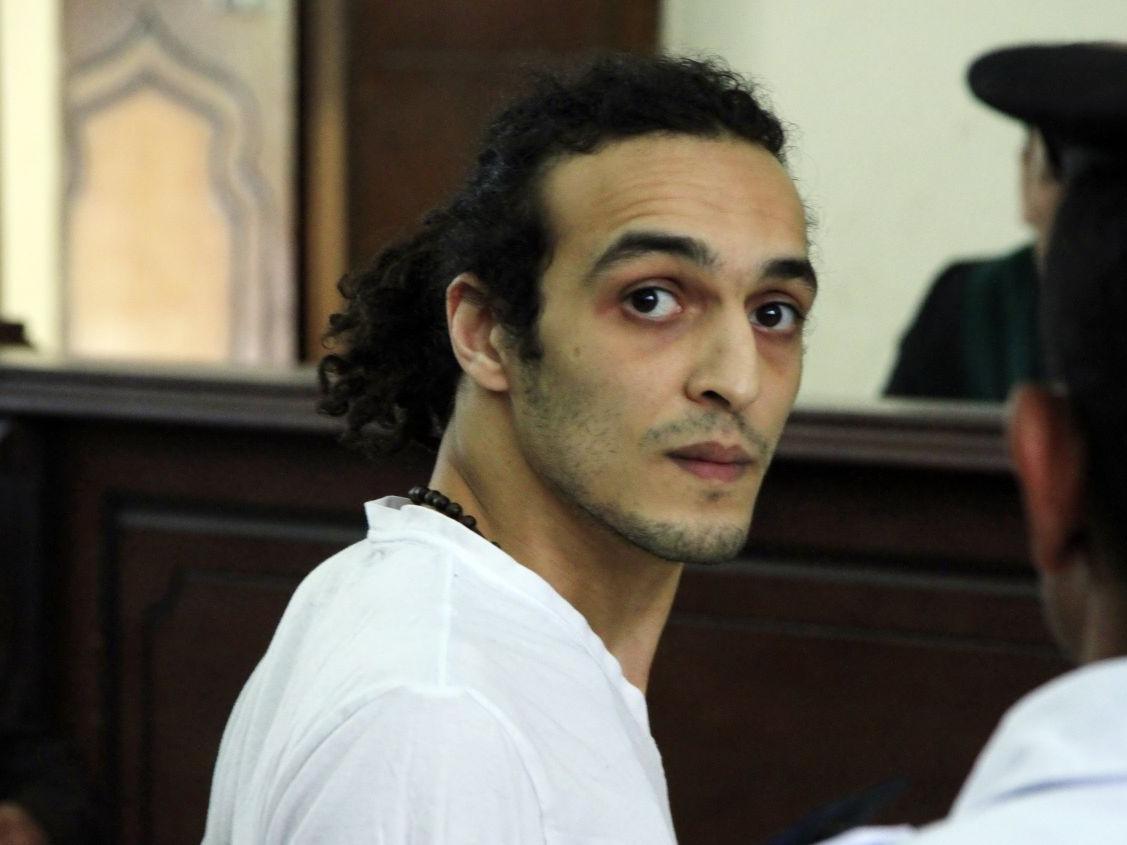Lawyers for photojournalist on death row begin closing statements in Egyptian court
Defendant stands accused of broad range of crimes including murder and attempted murder

Your support helps us to tell the story
From reproductive rights to climate change to Big Tech, The Independent is on the ground when the story is developing. Whether it's investigating the financials of Elon Musk's pro-Trump PAC or producing our latest documentary, 'The A Word', which shines a light on the American women fighting for reproductive rights, we know how important it is to parse out the facts from the messaging.
At such a critical moment in US history, we need reporters on the ground. Your donation allows us to keep sending journalists to speak to both sides of the story.
The Independent is trusted by Americans across the entire political spectrum. And unlike many other quality news outlets, we choose not to lock Americans out of our reporting and analysis with paywalls. We believe quality journalism should be available to everyone, paid for by those who can afford it.
Your support makes all the difference.Lawyers for Egyptian photojournalist Mahmoud Abu Zeid, who has been imprisoned without trial since August 2013, are set to begin their closing statements in a court in Cairo on Saturday, with the jailing having become a symbol for many of a crackdown on press freedom in the country.
The photographer, known as Shawkan, is potentially facing the death penalty as part of a mass trial alongside over seven hundred other defendants. He was arrested as he photographed security forces dispersing an anti-government sit-in, during which hundreds of protesters and several security forces members were killed.
Shawkan is accused of a broad range of crimes, including murder and attempted murder, unauthorised assembly and a string of weapons charges – despite his legal team arguing he was documenting the protests for the UK photo agency Demotix.
His lawyer, Karim Abdelrady, spoke to The Independent from Amsterdam, where a debate on press freedom and an exhibition of Shawkan’s photographs was recently held at the Netherlands Institute for Sound and Vision. According to Mr Abdelrady, Shawkan is “not well psychologically” and his family fear he may attempt to end his own life.
Shawkan entered prison with Hepatitis C, while the trial judge last year ordered an investigation into allegations he was being denied access to medical treatment, something authorities have denied.
Nevertheless, Mr Abdelrady remains optimistic “that Shawkan eventually will be acquitted” and suggested that the trial could conclude within months.
A number of international human rights organisations are tracking the case and the photographer was awarded the United Nations Educational, Scientific and Cultural Organisation’s (Unesco) Press Freedom prize for 2018 on Wednesday with jurors praising his “courage, resistance and commitment to freedom of expression’.
The mass trial has already been repeatedly delayed and there it is possible Shawkan’s case could be delayed further. In December 2015 the trial was postponed because the courtroom was found to be too small to hold the 739 defendants. Those defendants have remained in pre-trial detention throughout that time, despite a maximum two-year pre-trial detention period determined by Article 143 of Egypt’s Code of Criminal Procedure.
“Shawkan’s imprisonment has become illegal,” said Mr Abdelraby.
Justin Shilad, a researcher with the Committee to Protect Journalists (CPJ), was more circumspect about Shawkan’s future, saying he had seen no “indications of leniency” from judge Hassan Farid.
“Egypt is witnessing the worst time to be a journalist in recent memory,” Mr Shilad added.
Amnesty International has raised multiple concerns about the conduct of the trial, highlighting a 2017 court report in which Shawkan was reported to be in “very good health”. According to the CPJ, during a 2016 trial session, the prosecution offered as evidence footage of anti-government protests from 2011 and 2012 – a year before Shawkan was arrested.
Shawkan’s arrest came as the Egyptian security forces cleared thousands of protesters from Raba’a Square, Cairo, where they had built a sprawling protest city following the ousting of democratically elected president Mohammed Morsi by forces loyal to now president Abdel Fattah al-Sisi. Over eight hundred people died as the protest was cleared, according to Human Rights Watch.
Shawkan is being held in the notorious Tora prison complex, outside Cairo, where Human Rights Watch and others have documented scores of alleged human rights violations. Egyptian authorities have said all prisons in the country adhere to “international standards”.
Also held at Tora are high profile co-defendants in case, including senior figures within the Muslim Brotherhood, the pan-Arab political organisation of which Morsi was a member and which has been banned and repressed under Mr Sisi.
The Rory Peck Trust, a UK-based charity which supports freelance journalists around the world, has been following Shawkan’s case since his arrest. “Shawkan is part of a whole generation of young freelance journalists who are suffering for their work, said Austin Cooper, the charity’s North Africa researcher. “Without their ability to report freely, Egypt suffers in silence with them too,” he added.
“Last hearing, Shawkan appeared well and strong, but he is still suffering,” said Mr Abdelraby.
“He has hopes he will be released very soon.”